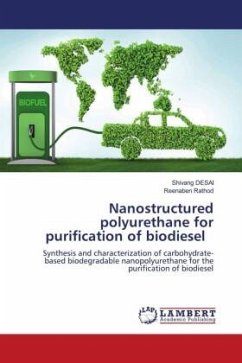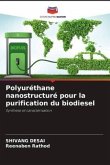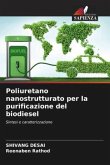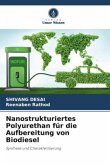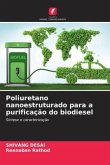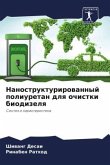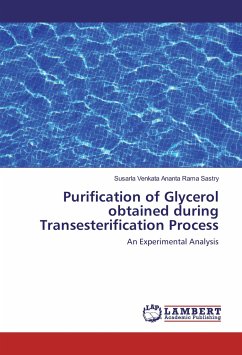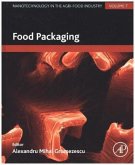Biodiesel delivers suggestively eliminate emissions of carbon monoxide, particulate matter, unburned hydrocarbons, and sulfates as compared to crude petroleum diesel fuel. Furthermore, biodiesel addition advantages is to diminishes emissions of carcinogenic compounds by as much as 85% compared with crude petroleum diesel fuel. However, producing biodiesel that adheres to international standards has proved difficult using current technology. The presence of impurities like soap, residual catalyst, free fatty acids and metal ions are detrimental to the efficient operation of diesel engines. A nanostructured polyurethane is applied for the purification of Biodiesel is a sulphur-free renewable fuel with a fuel value comparable to petroleum derivatives. In these book research developed a novel solution for the problem. They designed polyurethane-functionalized starch nanoparticles. These nanoparticles have large surface area, surface volume and porosity at the nano-level, making them ideal adsorbents. Moreover, they are biodegradable. The synthesized fresh biodiesel from Karanja (Pongamia pinnata) oil, using acid catalysed transesterification. They designed two classes of polyurethanes.
Bitte wählen Sie Ihr Anliegen aus.
Rechnungen
Retourenschein anfordern
Bestellstatus
Storno

